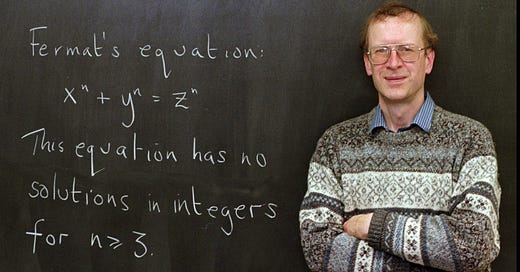Writing’s hard.
Every Thursday I attempt this newsletter and every Thursday night I go to bed appalled with what I’ve written.
This is the week I f**k it. I think to myself.
Hopeless
On Friday morning I inspect the damage. Not a complete disaster- there may be hope yet.
I take a couple more passes and it starts to take shape. At this stage I ferry it off to my far more literate twin sister, Polly. Polly usually reports back the next day: It’s ok!
Phew.
A quick brush up on Saturday afternoon, and I schedule it for Sunday morning with a spring in my step. Crisis averted for another week.
We’re Doomed
I find the same dynamic plays out when problem solving.
Ben and I knew nothing about cabins a year ago. The learning curve has been steep. Each week we uncover a new, seemingly insurmountable, problem.
We’re doomed.
After the initial pondering throws up nothing I park the problem in my subconscious. Then something magical happens: an answer appears. I’ll be out for a walk, reading a book, or in a random conversation, and the problem dissolves.
The insurmountable problem suddenly becomes, well, surmountable.
Dark Mansions
I’m reminded of a wonderful book I read last year: Fermat’s Enigma by Simon Singh. It recounts the remarkable story of the world’s most famous maths problem: Fermat’s Last Theorem.
In 1637 the French mathematician Pierre de Fermat hinted that he’d found a proof to a previously unproven equation (details here for anyone interested). For the next 350 years the world’s greatest minds tried and failed to match the feat. Until, that is, Andrew Wiles, an unassuming Englishman, came along.
Wiles was a man obsessed.
He found the problem as a young child and spent the next thirty years fixated by it. This culminated in seven years of isolated work in an attic that finally led to him solving the unsolvable.
What concerns us here is how he describes problem solving: like exploring a dark mansion.
Each room you enter is dark. You stumble around trying to get your bearings (for weeks or months in Wiles’ case.) Eventually you happen on the light switch. You flip it on, triumphant, and see where you’ve been stumbling. Once you’re done congratulating yourself you proceed through the door and start on the next one.
It’s a wonderful metaphor.
Problem solving (and writing for that matter) involves a period of stumbling in the dark, with little idea of what’s around us. Then, like magic, something clicks and the scene becomes clear.
A useful idea for life: it’s reassuring to know there’s a light switch somewhere.
My Week in Books 📚
“The Order of Time” by Carlo Rovelli
Much to grapple with: there’s no such thing as the present state of the Universe. Present to who? It’s all relative. In fact time is just our blurred perception of reality. The universal passing of time simply doesn’t exist.
I need some time to digest this one.
“On Writing Well” by William Zinsser
As you may have deduced it’s not a magic pill, but a wonderful book nonetheless. The advantage of books on writing is that they tend to be well written. I’ll miss Zinsser’s soothing tones. A pleasure to read.
Book two of my bookclub with Hector Alexander.
I’ll be updating the books I’ve read this year here. Any recommendations? Let me know!
A Final Thought 💡
“Energy and persistence conquer all things.”
― Benjamin Franklin






I like what you said about initially stumbling around in the dark when starting to write- very true! 😊 great post